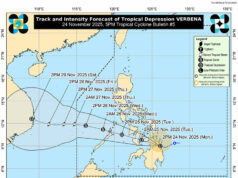MinDA partners with CMU, iFresh for agribusiness program
DAVAO CITY — The Mindanao Development Authority (MinDA) has teamed up with a Mindanao-based university and an agricultural trading firm for an agribusiness program focusing on poor and conflict-affected communities.
MinDA, in a statement, announced that it signed on Tuesday a memorandum of agreement with the Central Mindanao University (CMU) in Bukidnon and iFresh Corp. for the New Harmonizing Opportunities for People Empowerment (HOPE) Program.
Under New HOPE, MinDA aims to partner with various state universities and colleges for the development of training facilities on agribusiness, entrepreneurship, and financial literacy across Mindanao, while the private sector will assist in marketing and linking communities to local and international buyers.
The target beneficiaries are former rebel combatants, returning overseas Filipino workers, and victims of calamities such as the series of earthquakes last year.
“To sustain the peace and development gains of the Duterte administration, we have started these intervention programs to help transform war zones into economic development zones and deliver meaningful socio-economic interventions through access to livelihood opportunities,” said Secretary Emmanuel F. Piñol, chair of MinDA.
The MinDA-CMU-iFresh partnership involves the establishment of a facility for free range chicken propagation and processing, according to CMU President Jesus Antonio G. Derije.
Mr. Derjie said they are also planning to develop the site for agri-tourism with complete biosecurity measures.
“We are looking at this facility as a ‘chicken haven’, which will showcase local varieties of chicken in Mindanao,” he said.
Mr. Piñol also said that a business group from Qatar has already expressed interest in buying free range chicken from Mindanao.
To complement the New HOPE Program, MiNDA will also be implementing the Livelihood in Villages for Economic Upliftment (LOVE-U) project wherein those who have completed the trainings will be given capital assistance to start their agribusiness ventures.
“This is simple and practical agriculture. We need to give people the opportunity to raise chicken not just for food, but as a way to make a living,” he said. — Carmelito Q. Francisco



